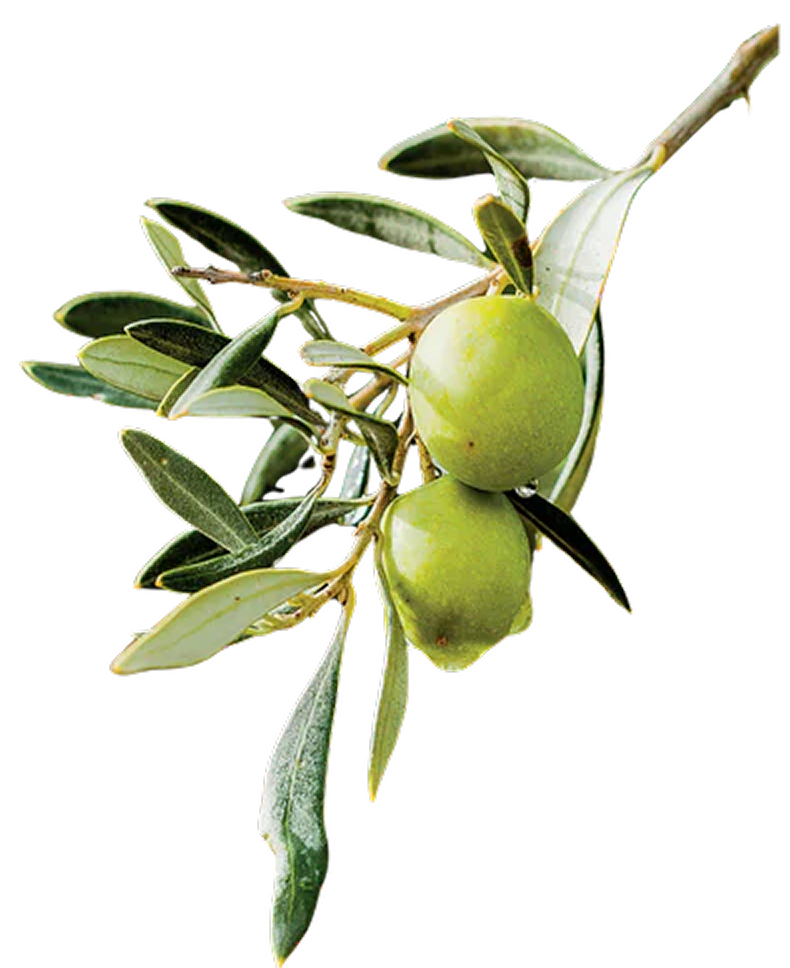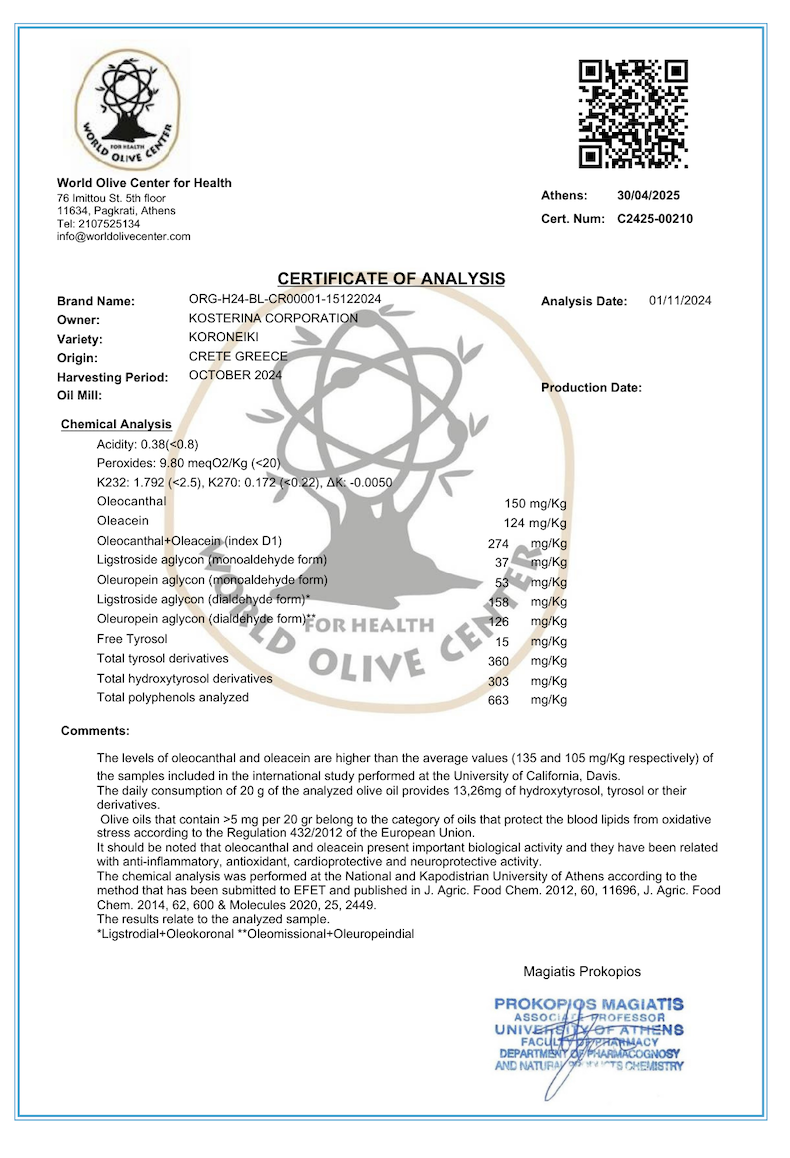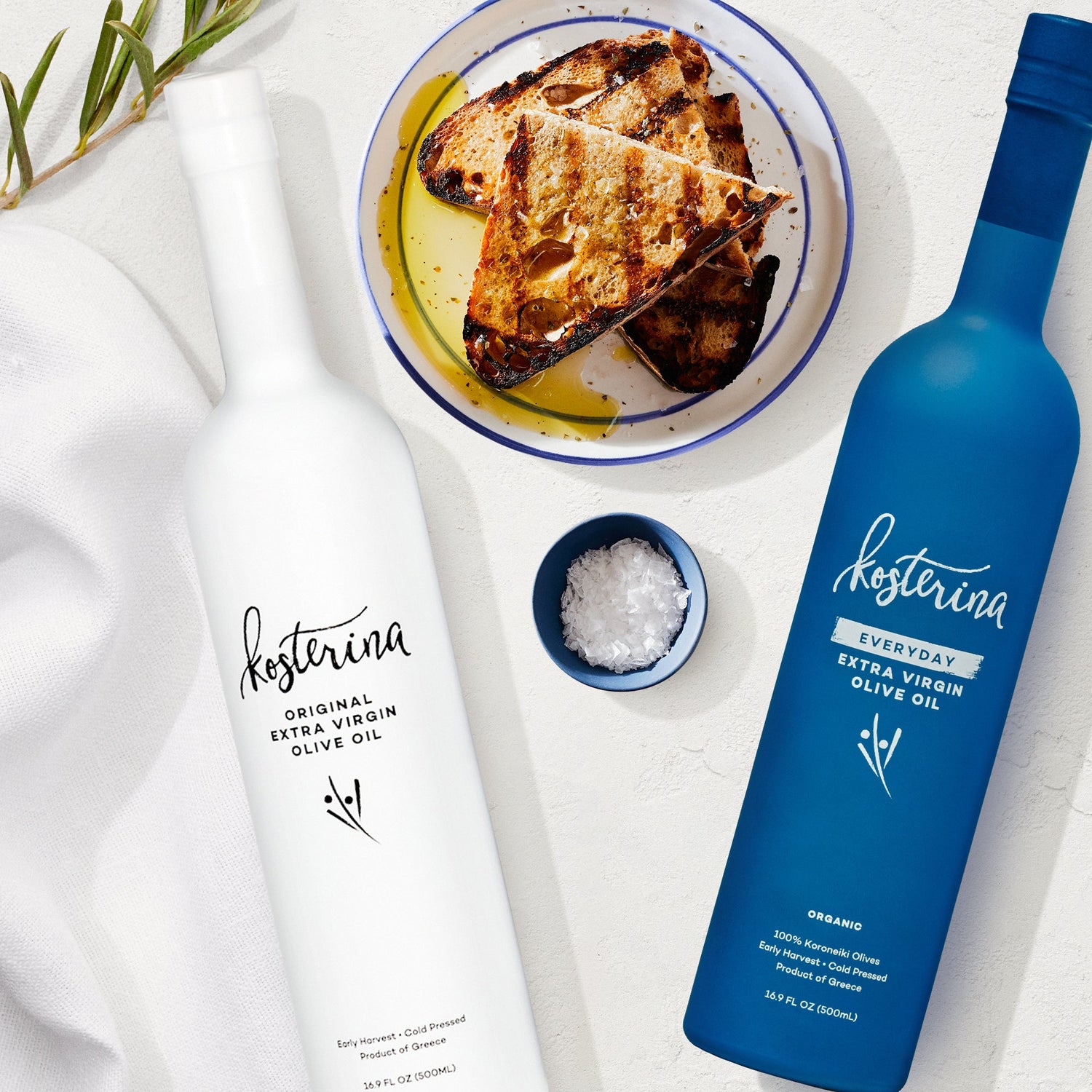From Grove-to-Table
We began as a single family farm in our hometown of Koroni, Greece. What started as a passion project—bringing high-quality extra virgin olive oil home to our friends and family—quickly became something much bigger. We discovered that the Greek olive oil on store shelves couldn’t compare to the rich, authentic flavors of what our family made back in Greece, and we knew we had to share it. As we grew, we sought out other small farms in Southern Greece that shared our deep-rooted commitment to quality, sustainability, and organic farming practices. By partnering with these like-minded growers, we’ve been able to preserve the integrity of our oil while expanding its reach.
Our Farms
Kosterina olive oil is made exclusively from Koroneiki olives, sourced from our farms in Laconia and Messinia in the Peloponnese, and Crete. What makes these olives exceptional isn’t just their variety—it’s where they grow. Rooted in rocky hillsides, sandy soils, and mineral-rich earth, the trees endure tough conditions, developing deep roots that draw in essential nutrients. This natural resilience produces small but mighty olives, packed with polyphenols—powerful antioxidants that give our oil its bold flavor and incredible health benefits.
The Koroneiki Olive
The little olive that’s been doing big things in Greece for over 3,000 years

Harvested Early & Cold-Pressed
Delivering bold, peppery notes and vibrant green aromas – the hallmark of true high-quality EVOO
Small in Size, Mighty in Impact
Naturally rich in polyphenols – powerful antioxidants that fight inflammation and promote heart health
Grown in Rocky, Mineral-Rich Soil
Enhances depth of flavor & complexity
Native to Southern Greece
“Koroneiki” means “from Koroni” & Koroni is the hometown of the Kosterina family
Our Testing
Chemical Analysis (Polyphenols, Acidity & Other Markers)
Chemical analysis in olive oil testing involves evaluating several components that determine the quality of the oil. Key indicators include polyphenols (antioxidants that contribute to the oil's flavor and health benefits), acidity levels (which can indicate oil freshness and quality), and other chemical markers that measure the presence of undesirable substances or spoilage. By testing these elements, it can be determined whether the olive oil is "premium," meaning it has high quality, low acidity, and beneficial antioxidants.
Pesticides
Although all our farms use organic farming methods, we always ensure the oil is squeaky clean before transit to the US. Detecting pesticides ensures that the olive oil is free from harmful chemicals, maintaining both safety and quality.
Microplastics
Microplastics testing is used to detect tiny plastic particles that may have contaminated olive oil, often through packaging or environmental exposure. These tests ensure that the olive oil does not contain any microplastics, which can be harmful to health and indicate poor production practices or contamination from surrounding environments.
Food Safety
Food safety testing focuses on ensuring that olive oil is free from harmful bacteria, pathogens, or other contaminants that could pose a risk to consumers. This testing verifies that the oil is safe for consumption and complies with regulatory standards for food products, which is crucial for protecting public health and preventing foodborne illness.
Collapsible content

Testing Results
Signature EVOO 2024 Harvest
Each harvest undergoes rigorous testing to ensure our olive oil meets the gold standard for freshness, flavor, and health benefits.
Oleocanthal & Oleacin
These antioxidants have strong anti-inflammatory properties, similar to ibuprofen, but without the side effects. Oleocanthal & Oleacin help reduce inflammation in the body, which can lower the risk of chronic diseases. They also protect against oxidative stress, which can damage cells and lead to aging and disease. The slightly peppery sensation you feel in the back of your throat when tasting high-quality olive oil is actually a sign of these antioxidants' presence and its potencey.
Acidity
Extra virgin olive oil (EVOO) must have less than 0.8% acidity to be legally classified as "extra virgin," a standard that typically reflects olives that were harvested at the right time, milled quickly after harvest, and stored properly to preserve freshness.
Total Polyphenols
Higher polyphenol content means stronger antioxidant properties, which help combat oxidative stress in the body.






